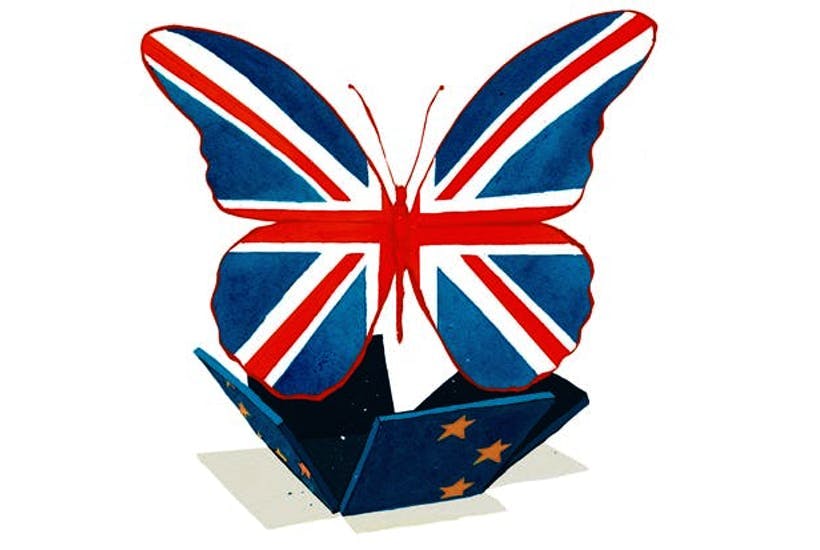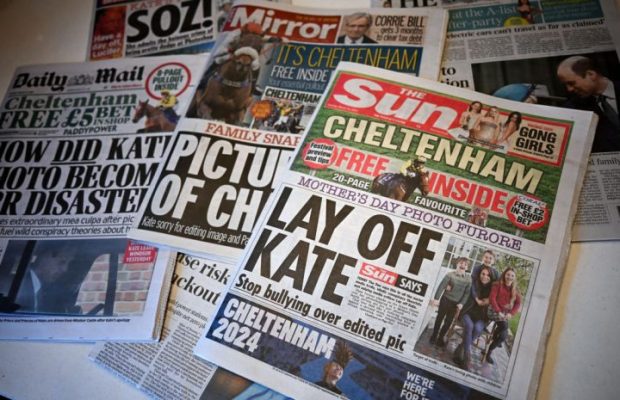A year ago today Britain awoke to a rather muted celebration – which seemed to consist largely of a bubble car driving around Parliament Square with a Union Jack in tow – ready to face up to a brave new future outside the EU. Who would have imagined then that the Observer would mark the first anniversary by running a leader condemning the EU as ‘shambolic’ and instead praising Boris Johnson’s government for something Britain did all by itself?
Of course, the Observer’s judgement is only in respect to one thing: the EU’s joint vaccination procurement programme. Nevertheless, it is something rather important, on which a great number of people’s lives are dependent. Moreover, it is just about the first hard test of the different paths Britain and the EU have decided to take.
The EU’s failure strikes at the heart of its over-centralised way of doing things and its empire-building efforts to poke its nose into every detail of member states’ policy.Until Ursula von der Leyen, President of the European Commission, embarked on her EU-wide vaccine-buying programme (forbidding member states to start their own procurement programmes in the process) healthcare was something still considered to be the remit of individual countries.
Had Britain still been in the EU, we would have managed only to vaccinate around 3 percent of our population – not the 14 percent we have done. Our ability to make our own decisions has proved vital. If this first test is a sign of what is to come – as we begin to make our own trade deals and embark on reviewing the regulation we have inherited in our years in the EU – it bodes rather well for the future.
That said, it would be foolish to deny the deep problems Brexit has caused for some UK businesses. While the government achieved a zero-tariff trade deal that many doubted could be done (which happily frees us from being a rule-taker), there has been a nasty sting in the tail. This includes too many stories in recent weeks of businesses finding themselves hit with red tape and unexpected customs charges.
It isn’t just a few unprepared businesses which have been caught out, as government ministers sometimes suggest; the barriers to trade with EU member states are far higher and far more awkward than the words ‘free trade agreement’ ought to suggest.That UK fisheries businesses have found themselves with catches they are unable to export, thanks to bureaucracy, is especially damaging. The fishing industry was one of the biggest cheerleaders for Brexit. Many of those businesses are based in the north-east of Scotland; it would be devastating to the government if those areas form new allegiances, such as backing an independent Scotland.
All is not lost, however. The bureaucracy into which UK exporting businesses find themselves sinking is EU-created bureaucracy. It is EU phytosanitary rules, for example, which prevent farmers exporting seed potatoes, and EU rules of origin which are irritating exporters and trapping them with unexpected tariffs. We are discovering – by being on the wrong end of it – just how protectionist the EU is, and how it uses petty rules and regulations as non-tariff barriers to trade. We might fall foul of this attitude when exporting to the EU, but we are no longer bound by it when trading with the rest of the world. It is up to the government now to show how, through deregulation, it can boost trade and wealth.
The government has played a blinder with its vaccine-buying programme, and left the EU looking like the lumbering organisation it is. If we act rightly, the gulf between nimble and smart UK trade policy and that of the protectionist EU will grow wider in years to come.
Got something to add? Join the discussion and comment below.
Get 10 issues for just $10
Subscribe to The Spectator Australia today for the next 10 magazine issues, plus full online access, for just $10.




















Comments
Don't miss out
Join the conversation with other Spectator Australia readers. Subscribe to leave a comment.
SUBSCRIBEAlready a subscriber? Log in